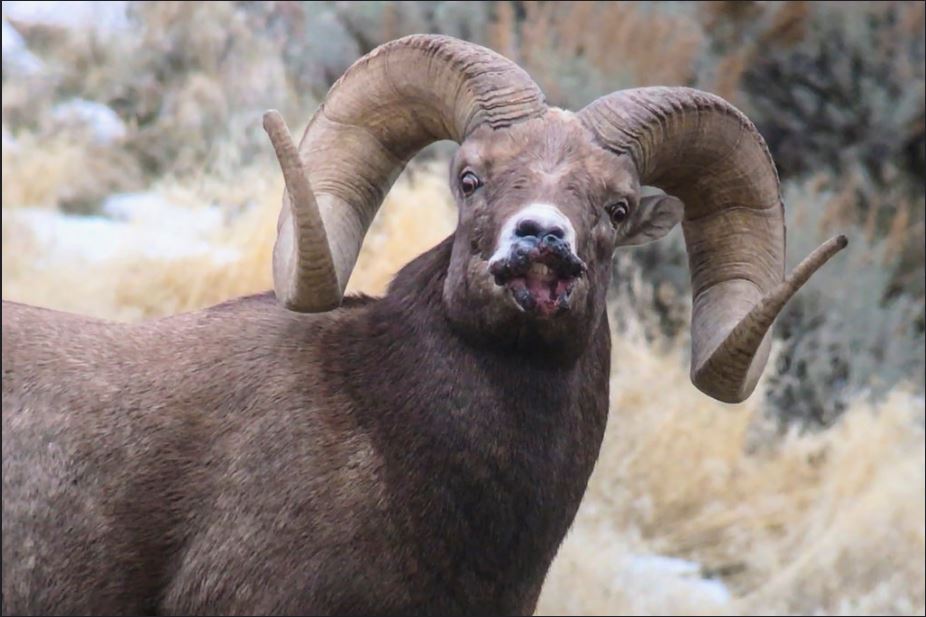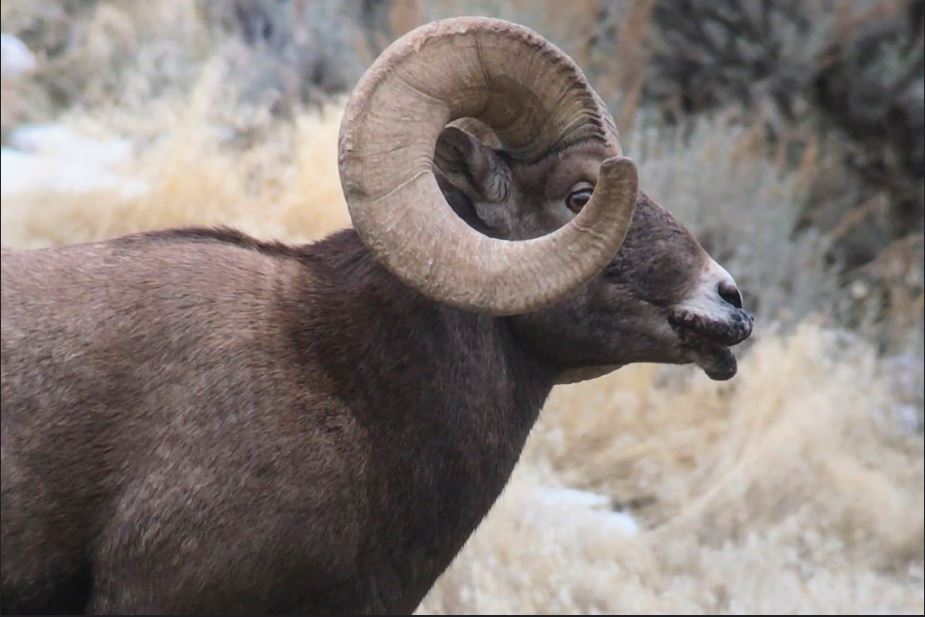This is not a zombie invasion… It’s just a virus outbreak that completely disfigures bighorn rams in Yellowstone National Park. And if you see one of those animals with such freakishly scabbed lips just don’t approach it. In fact, don’t approach bighorn sheep at all since the sore mouth disease – also known as contagious ecthyma and caused by the parapoxvirus – is transmittable to people if direct contact with infected sheep occurs.

Sore mouth disease is common in farmed sheep and goats and widespread in wild bighorn sheep in the Rocky Mountains from Alaska to California. Typically spread from ewes to lambs, the disease can manifest itself as scabby sores around the mouth and face. Lesions disappear in 2-4 weeks and animals typically heal without scarring. Generally, affected animals recover but deaths can occur in severe outbreaks, especially with young animals who cannot feed. The virus has the greatest effect on lambs that refuse to nurse because of sore mouths.

So far, only breeding age rams in the park have been observed with lesions. This is likely a result of frequent contact with each other and possibly infected ewes during the breeding season.
The difiguring disease is difficult to control in bighorn sheep. However, it is typically self-limiting as animals build up protective antibodies. Park biologists will continue monitoring the infected animals and hopefully tell us about the evolution of the outbreak.













[…] This is not a zombie invasion… It’s just a virus outbreak that completely disfigures bighorn rams in Yellowstone National Park. And if you see one of those animals with such freakishly scabbed lips just don’t approach it. In fact, don’t approach bighorn sheep at all since the sore mouth disease – also known as contagious ecthyma and caused by the parapoxvirus – is transmittable to people if direct contact with infected sheep occurs. Read More… […]